"Balkan people eager for stable and peaceful region"
Tuesday, 15.01.2019.
10:50
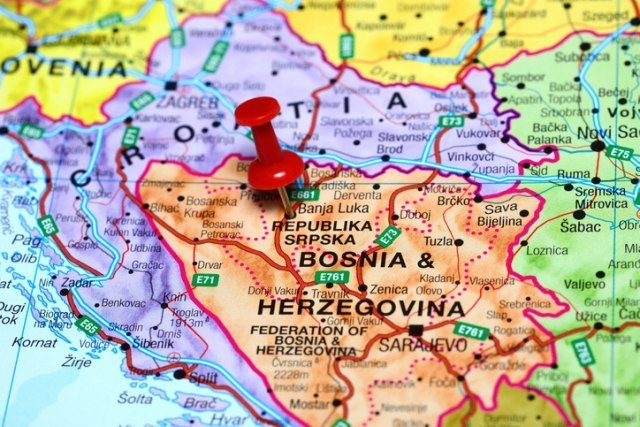
"Balkan people eager for stable and peaceful region"
“I think that rule of law is very convenient and vital for countries. For the moment the Balkan countries are not like the Western Europe or some other democratic countries to make the best use of such a thing. But it is senseless to wage wars anymore and create more innocent victims. We should learn lessons from the past, from the mistakes we made in the past. But I say - let us not try to learn too much from the past!”“I think that the Balkans needs the help of the European Union to reach the high degree of reconciliation. I know that reconciliation is difficult but the help of EU and even of UN can be useful. The people of the region are willing to create a more stable and peaceful Balkans,” Mr. Yasushi Akashi has told a group of journalists from the Western Balkans countries.
Mr. Akashi, the ex- Special Representative of the UN Secretary-General to the former Yugoslavia during the Bosnian war, received the journalists from Albania, Bosnia-Herzegovina, Kosovo, Macedonia, Montenegro and Serbia, who visited Japan from 3rd to 11th December 2018 under the Japanese Foreign Press Invitation Program 2018, at the International House of Japan in Tokyo on December 5, 2018. The veteran Japanese diplomat, 88, who was appointed special representative of the UN Secretary- General in January 1994, nearly two years after the war broke out, and remained in that post for most of 1995, dwelt at length on what he called the saddest time for the people of the countries of that region as well as on other international issues during the one-hour conversation with the journalists, who 'bombarded' him with questions.
"I am my own judge of my behavior,” Mr. Akashi, President of the International House of Japan, said in his candid confession what seemed as an elegant rejection of responsibility for what happened in Bosnia-Herzegovina, and particularly in Srebrenica during the mid-1990s.
The Srebrenica massacre, also known as the Srebrenica genocide, was the July 1995 massacre of more than 8,000 Bosniaks, mainly men and boys, in and around the town of Srebrenica during the Bosnian War.
Former UN peace envoy Yasushi Akashi told Ratko Mladic’s trial on November 25, 2015, that all sides committed crimes during the Bosnian war, but the Serbs were responsible for the most heinous atrocity in Srebrenica. Akashi also confirmed that Bosnian Serb forces captured UN peacekeepers in the summer of 1995 and used them as human shields to prevent NATO strikes.
“We could not foresee the events”
In his remarks during the interview with the journalists from Western Balkans, Mr. Akashi spoke with pain on what happened in Srebrenica but, according to him, the UN troops could do nothing and no one could foresee what would happen. “I am very sorry for what happened in Srebrenica. The UN troops were few in number, they were short of food and even fuel being not able to use their tanks and vehicles,” he said.
“Nobody expected that Serbs would arrive at the point of such an attack on Srebrenica. I remember that when my (UN) commander asked for NATO air support, I approved it within ten minutes after receiving his request. NATO started to bomb Serb positions. But, later, I had a phone call according to which the air strikes were getting closer to the Dutch soldiers and there was a request to stop the bombing. I had to comply with it,” he admitted, adding that some Dutch people were tormenting themselves over what happened something which he witnessed in a seminar in Holland. “I told the participants in the seminar that we were in a very, very difficult position in face of the massive offensive of the Bosnian Serb forces. I think there were 200 to 300 Dutch soldiers there and they were short of food and had no ammunition. They are still blaming themselves but it was an impossible situation - impossible to foresee what was coming, impossible to do any effective thing to prevent what was going to happen. And you must know UN did not have any intelligence service as such which means that we could not foresee the events,” said Mr. Akashi.
Speaking about his prediction on the future of Bosnia-Herzegovina he hoped that there would not be another war there. “But efforts should be made to keep calm and in this frame it is important the education of the young generation.”
He noted that before UNPROFOR in Bosnia he served in Cambodia where the mission was instrumental for introducing democracy. “While in the Balkans we were sent for peace-keeping, but there was no peace there. There were conflicts everywhere except Macedonia. There was no peace to keep, and on the other hand the attitudes of the big powers were different. US was essentially with Croatia, Russia was supporting Serbia. Also Germans were closer to Croatia while the British and the French were sort of neutral. I worked closely with the British and the French, but we had to be nice to everyone. I admired Tito but he was gone and I had to deal with Milosevic, Josipovic, Tudjman and Izetbegovic. Most of them were nationalistic.” In his comment on the late Serb leader, Slobodan Milosevic, Mr. Akashi was of the opinion that he was a very complex person. “As compared to some other more excitable nationalist leaders, Milosevic was more intelligent, he had more information and was more willing to talk and listen to. But Milosevic had probably his own visions as well as illusions.” According to his opinion, as compared to some of his people like Karadzic and Mladic, Milosevic was more intelligent. But the way he chose people surrounding him was wrong, Mr. Akashi said, adding that he was asked to go to the Hague Tribunal and testified about Karadzic and Mladic.
Replying to a comment by journalists that Milosevic chose them and so he was the most responsible person, the former senior UN envoy said: “His biggest responsibility is that he could not stop the nationalistic hysteria of the Serb people. For example, with regard to Kosovo I remember when one million Serbs were brought together in Belgrade and they were excited about the conflict in Kosovo. Sometimes he tried to help UN to calm down the situation but it was too late.” Describing Tudjman’s personality, according to him, he was not so outstanding, he was basically a nationalist but he used to keep intelligent people around him. “One thing I remember- he did not call Bosnian leaders by name, rather he called them Islamists or Muslims in a pejorative sense, which I regret.
“Serbia and Kosovo must continue talks”
Asked on the EU mediated Serbia-Kosovo talks and the new controversial element on the so called border correction Mr. Akashi had the following answer: “We in Japan have very serious border issues with a number of countries. We have problems with Russia, Korea, and some problems on some islands with China. I think that too much fixation exists among politicians everywhere on a piece of territory which is not too great, even in the sense of economic sense or other meanings. I generally distrust this fixation. When I worked in Sri Lanka I was asked once why Japan did not not imitate Norway and Russia which divided disputed territory on a 50-50 basis. I said that I agree but when there are emotions it is very difficult to calm them down. I would say that I am eager for rational solutions. And people's attachments to their territories are understandable but let's try to find a solution. With regard to the question of exchange of territories you should also take into account the history in the sense if you go back 50 years, 100 years or 500 years. So everything seems weird spending so much time, thoughts and some time blood. It is not worth it.”
Mr. Akashi hoped that the solution to the issues between Serbia and Kosovo could come through negotiations between the parties.
“They must continue to talk to each other,” insisted the ex-UN envoy.
With regard to the name issue of Macedonia his answer was sharp: "If it is good for the people, it is good for me." Turning back in time he said that he was proud of UN which applied the preventive diplomacy in Macedonia.
Unhappy for Japan's passivity...
There was interest among journalists to know Mr. Akashi's opinion on the economic diplomacy of Japan and in this frame they referred to Japan's Western Balkans Cooperation Initiative launched by Prime Minister Shinzo Abe in mid- January in 2018.
"I think Japanese are very idealistic, too idealistic, because we are limited in our means," said Mr. Akashi in his reply. "Japan is an island nation. Personally I blame Japan for its passivity," he said, but, nevertheless, he praised the latest initiative of his country in the Western Balkans.
Asked on the claims of rising interference of Russia in the Balkans he said: “I think that Russia is a strong military power but economically it is not so powerful. Russia's influence should not be exaggerated. There could be a lot of sentimental interests because of religion, culture, history. But I think it is a mistake to be fixed too much on past history. Look at the conflict on Crimea between Russia and Ukraine. If we turn to history it was said that Ukrainian food was eaten by Russia. So why do we create so many additional borders? Look, young people mix with each other with great ease. So I think that there is much populism and nationalism and they should be left to the past. We should work with the young people who are more open minded about these borders. But it is very easy to draw lines. Too much border is not good."
“China is not the embodiment of evil"
A journalist raised a point on what he called the economic aggressiveness of the Chinese in the Western Balkans where, according to him, they are investing a lot in many projects.
The "16+1" mechanism, a platform created in April 2012 by China and 16 Central and Eastern European (CEE) countries, including WB countries, has delivered and many projects are underway.
In his reply Mr. Akashi saw nothing bad in the Chinese initiative because, in his opinion, it helped other countries' development and advantage of it could be taken.
"I think that China is not the embodiment of evil. I have been to China many times. In Japan there are also people that magnify the future influence of China in our country. Traditionally China has been a big power. I consider China a more cultural power rather than a military power. Today China has a big defense budget, second perhaps to the US. I hope all these countries will diminish this spending and then stop arming themselves so much because building arms creates reaction from others. So arms race goes on and on. That was so during the Cold War period. We tend to magnify our adversaries," he said.
In addition he pointed out: "Having seen China with my own eyes, it has strong points but also weaknesses. But Chinese people are very intelligent. I think they are trying to do a lot of good things for Africa. For example, thousands of Chinese are helping with UN. Let us try to take the advantage of China's wealth to develop these countries. The World Bank and the IMF are not always in accordance with Chinese wishes, but I think that their attitude is sometimes insensitive and arrogant. I think Chinese people are too intelligent to allow the emergence of a dictatorship. I am aware that there is only the Communist Party there, but it is in a country of a population of 1.4bn and the party membership is insignificant."
UN is indispensable
Mr. Akashi insists that the United Nations is an indispensable and vital international body for maintaining peace and stability in the world. As a matter of fact, Mr. Akashi's diplomatic career is closely linked with UN and its system. First he went to the United Nations in 1974, as part of the Japanese mission. In 1979 he joined the UN staff and spent the next 15 years climbing through the UN bureaucracy. He was in charge of the UN's department of disarmament in 1992 when he was suddenly picked to head the high- profile peace-keeping mission in Cambodia. Some who take an unenthusiastic view of Mr. Akashi's abilities believe that he was chosen over other able candidates largely because Japan was committing large sums of money to the Cambodian peace settlement, noted Independent in a column on April 30, 1994. With the Cambodian success under his belt, Mr. Akashi was a prime candidate for the job of bringing peace to ex- Yugoslavia, which did not produce his expected results.
"When big powers like the US do not cooperate with the UN having objections, I think that the UN is in trouble. Despite its faults and shortcomings, I maintain that the UN is indispensable," he said.
Meanwhile with a touch of humor Mr. Akashi mentioned the following episode of his career: "A Singaporean friend told me that I could get the Noble Peace Prize for the work done in Cambodia, but you went to the Balkans where you were not so successful. But my answer was that, as a UN official, you have no choice. I could not refuse a difficult job. I do not have any regret of getting engaged in the Balkans. Maybe I am stupid. But the Nobel Peace Prize - what is that. Some people get it for their merits, some others get it by mistake. But I am my own judge of my behavior.”
In conclusion the veteran Japanese diplomat Mr. Yasushi Akashi had this message for the WB people: "I think that rule of law is very convenient and vital for countries. For the moment the Balkan countries are not like the Western Europe or some other democratic countries to make the best use of such a thing. But it is senseless to wage wars anymore and create more innocent victims. We should learn lessons from the past, from the mistakes we made in the past. But I say- let us not try to learn too much from the past!”





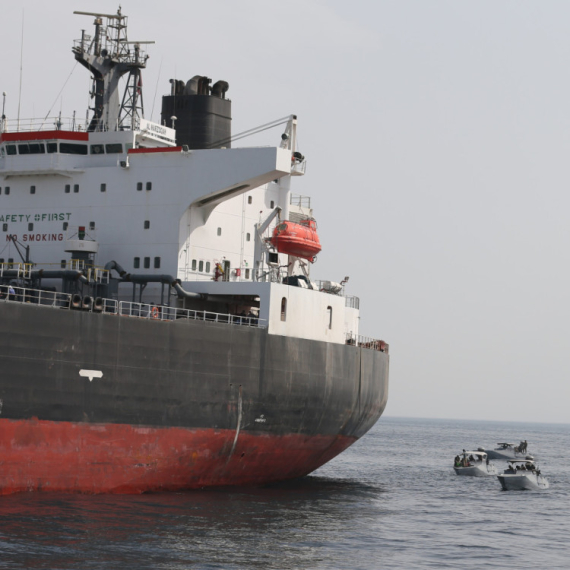




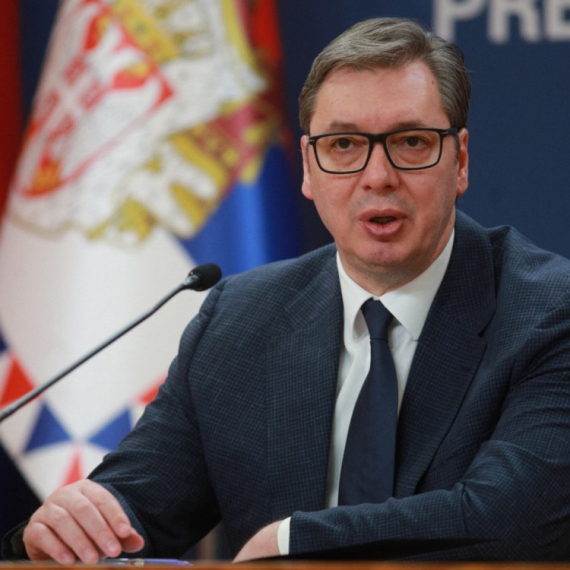
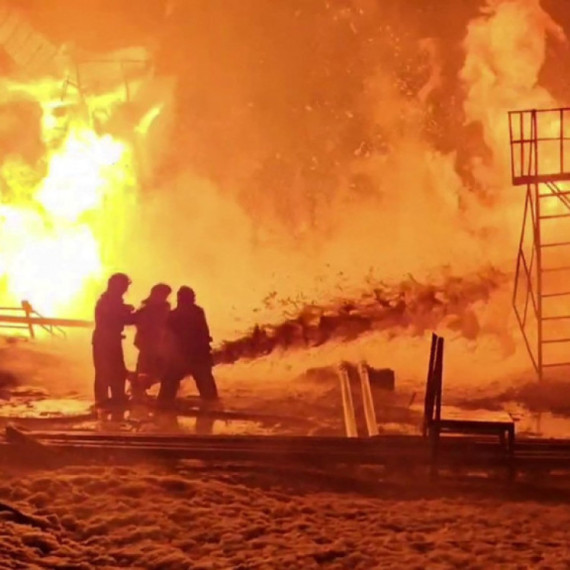



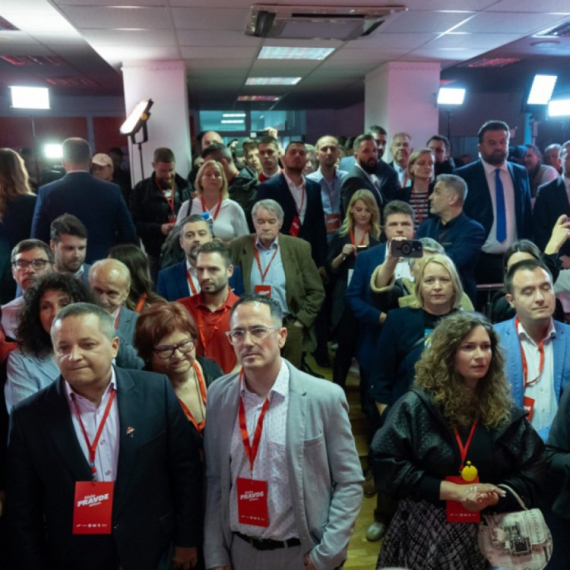






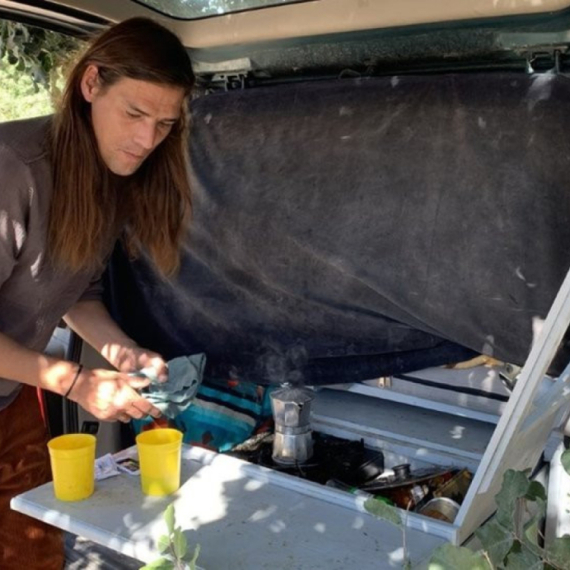
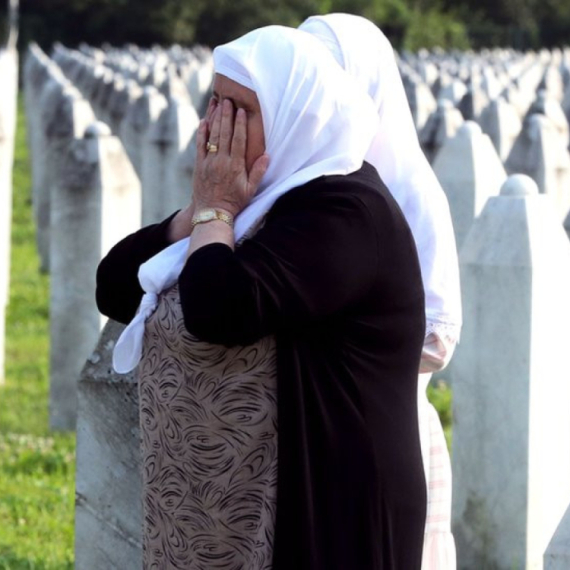
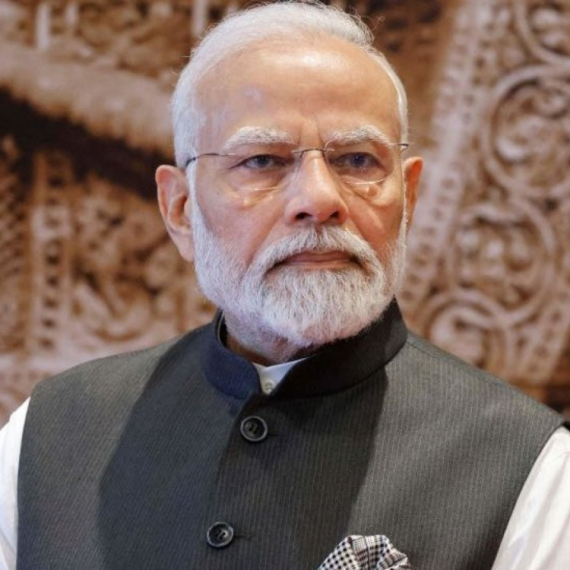
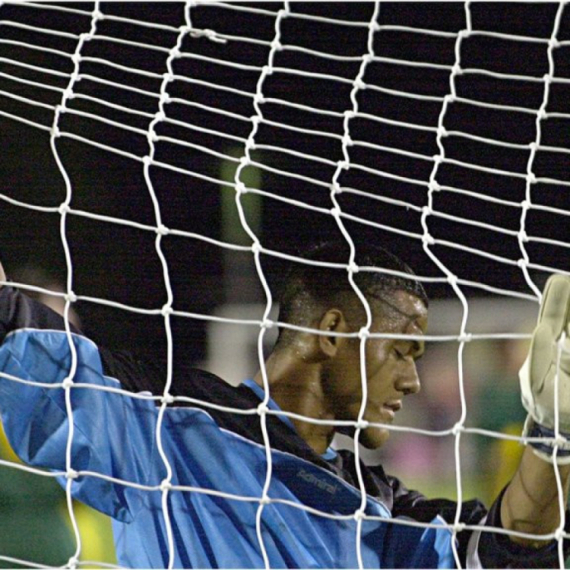

Komentari 9
Pogledaj komentare